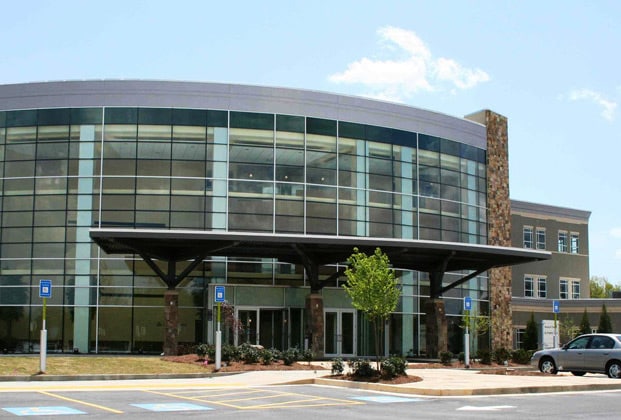The Neurophysiology Department at Northeast Georgia Medical Center (NGMC) provides advanced diagnostic testing to evaluate the electrical activity of the brain and nervous system. Our board-certified neurologists and experienced neurodiagnostic technologists use the latest equipment to help diagnose a wide range of neurological conditions.
Whether you’re an inpatient or outpatient, our services are delivered with expertise, compassion and access to state-of-the-art neurodiagnostic tools. If you’re searching for an outpatient EEG near you, NGMC offers several EEG options, including routine and long-term testing.
Conditions we evaluate
We provide testing and diagnostic support for a variety of neurological issues, including:
- Seizures and epilepsy
- Seizure-like events
- Encephalopathy
- Coma and brain death
- Neuromuscular disorders (e.g., neuropathy, myopathy)
- Nerve injuries, such as carpal tunnel syndrome and sciatica
Our Services
Nerve Conduction Studies (NCS)/Electromyography (EMG)
These tests measure the electrical activity of muscles and nerves to detect nerve damage or muscle disorders. During the study, small electrodes are placed on the skin or into the muscle. EMG is commonly used to diagnose:
- Neuropathy
- Myopathy
- Sciatica
- Carpal tunnel syndrome
Electroencephalography (EEG)
An EEG measures electrical activity in the brain through small electrodes placed on the scalp. It typically takes 25–30 minutes and is used to evaluate:
- Seizures and epilepsy
- Fainting or unexplained neurological symptoms
- Coma or altered mental status
- Rapidly progressing dementia
Looking for an EEG department with advanced technology and expert care? NGMC provides both inpatient and outpatient EEG options.
Continuous EEG (cEEG) / Long-Term Video EEG Monitoring
Also called long-term EEG monitoring, this test tracks brain activity continuously over 24–72 hours, often in a critical care setting. It helps detect subtle or non-convulsive seizures and distinguish seizures from seizure-like symptoms.
Ambulatory EEG (AEEG)
This test allows for extended monitoring of brain activity (24–72 hours) while the patient goes about daily activities. After the setup at our Neurophysiology Lab, the patient wears the device at home, increasing the chances of detecting intermittent abnormalities.
Intraoperative Neuromonitoring (IONM)
IONM protects the brain, spinal cord and nerves during surgery by continuously tracking nervous system function in real time. This helps prevent injury and allows the surgeon to make immediate adjustments when needed. A trained technologist monitors the data under the guidance of a supervising physician.
Why choose NGMC for neurodiagnostics?
- Fully equipped Neurophysiology Lab
- Inpatient Epilepsy Monitoring Unit (EMU)
- Access to board-certified neurologists and neurointerventional surgeons
- Integrated care across our EEG department, stroke unit, ICU, and surgical teams
- Modern neuroimaging and monitoring technologies, including biplane angiography and intraoperative CT
Locations
Gainesville Locations
Braselton Locations
Frequently asked questions
A routine EEG lasts about 30 minutes and captures a brief snapshot of brain activity, while a continuous EEG (cEEG) records brainwaves over 24–72 hours, often with video, to catch seizures or abnormal activity that might not show up during a short test.
Yes. NGMC offers outpatient EEG testing for patients referred by their provider. Ambulatory EEG (AEEG) is another outpatient option that lets patients return home with a portable device.
Avoid caffeine and wash your hair the night before. Your care team will provide more details specific to the type of EEG you’re receiving.
Yes, most neurophysiology tests require a referral from your primary care doctor or neurologist. If you have questions about referrals, our team can help guide you through the process.





